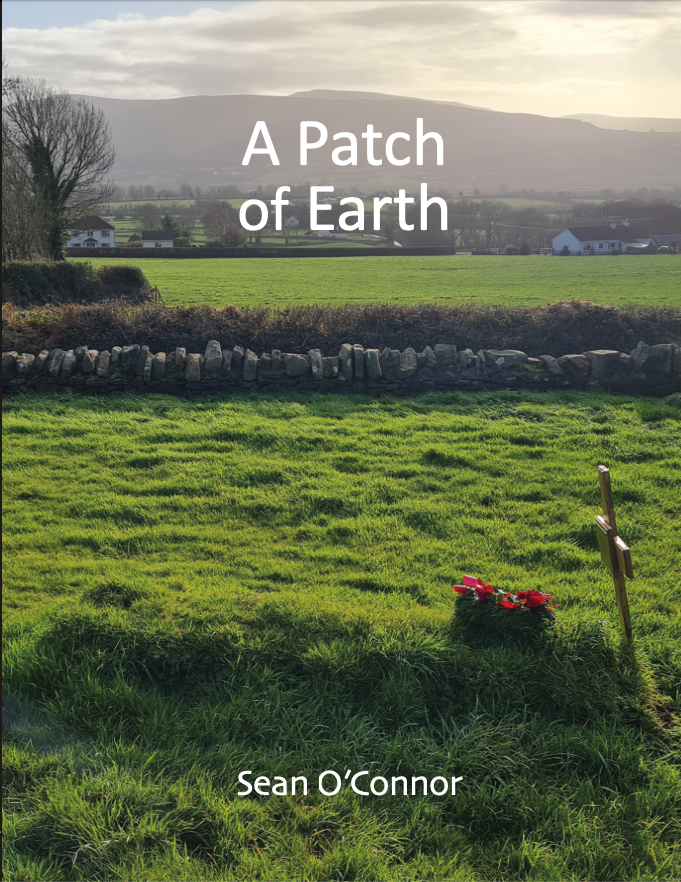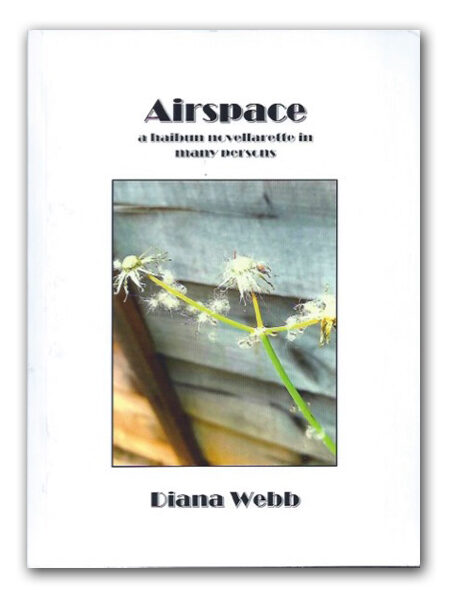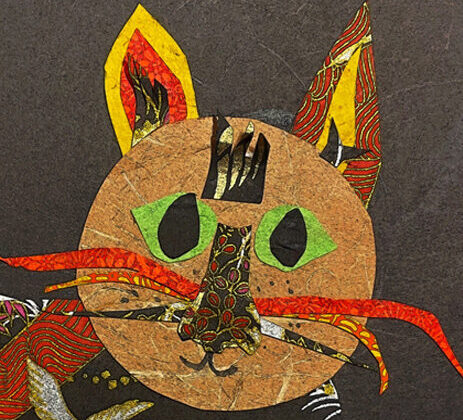Books in Brief
Reviewed by Rich Youmans, Terri L. French
A Patch of Earth

By Sean O’Connor
Published by Alba Publishing
Uxbridge, United Kingdom
2023, Paperback, 84 pages
ISBN: 978-1-912773-58-9
Available from the author
A Patch of Earth is in some ways a follow-up to O’Connor’s award-winning book Fragmentation (also from Alba Publishing), in which he chronicled his father’s descent into dementia. That book ends with O’Connor visiting his father in the hospital at Christmas time, and A Patch of Earth begins at Christmas with a dire prognosis: “Your father is dying.” The rest of the book depicts, through haiku, tanka, tanka prose, and haibun, the author’s grief after losing his father, the memories that brought him perhaps some degree of comfort, and ultimately the sense of gratitude for the man who raised him and gave him so much. As the book jacket notes, for a year O’Connor made weekly visits to his father’s grave outside Nenagh, Tipperary, and these trips served as the basis for the book. There’s a reserve in O’Connor’s tone in those pieces where he tries to reconcile his loss, especially when cleaning out his father’s house. In others, he’s talking to his father as if they were together again, with an openness that can be heartbreaking. Throughout the book, O’Connor says just enough to get across a sadness that, even after appreciation and acceptance replace grief, is never quite gone. —RY
Excerpt:
Crying
My father is a year dead next week, yet only now are his belongings close to being disposed of. The cupboards are empty, the drawers and wardrobes idle, and every shelf looks naked now. Not a single image that he cherished can be seen. Anything of value, sentimental or otherwise, has been gathered in his front room, close to the door for ease of evacuation.
Perhaps soon the cries of an infant will be heard in here. I think he’d like that.
outside, a dog barks so dim and silent, his house the walls look bare how compressed, my father's life everything in three boxes
Airspace: A Haibun Novellarette in Many Persons

by Diana Webb
Published by Spinning Sequin Press
Leatherhead, Surrey, Great Britain
2023, Paperback, 68 pages
ISBN: 978-1-3999-5986-5
£6 GBP
Available from the author
Diana Webb’s latest book is a story of love and loss told in a way that is both elusive and captivating. The “novellarette” consists of a series of haibun that are grouped together into sections; together the sections span decades, and how they interrelate can only be understood fully in retrospect. The book begins with a scene from the ballet Swan Lake, and from there Webb spins an intricate story that encompasses relationships, love, trust, and betrayal. There is an intensity yet a lightness to Webb’s writing that mimics the ballerina’s steps—pirouetting and jetéing through time, both linearly and through retrospection. She uses both first person and third person narratives—the former to better express the emotions of the characters, the latter, perhaps, to serve as wide-angle lenses capturing the story’s sweeping theme. The book’s intricate complexity requires a great deal on the part of the reader, especially during the last sections of the book. One section diverges from ballet and talks about haiku (among other aspects of Japan), seemingly introducing a new “voice” beyond those in the previous sections. Whoever owns this voice—is it the writer’s, remembering her personal life experiences?—is left for the reader to decide. The book ends with an exercise that’s similar to the one Webb presented in her previous chapbook Slipping Between, where pages of words, fragments, and phrases were offered as inspiration for the reader to write his or her own haibun. Is this last section now asking readers to add their own voices to the novellarette? It’s a little difficult to decipher, but for those readers up for the challenge of this ambitious book, there’s plenty of room for them to create their own dance of words.—TLF
Excerpt:
Pink
I told you about the connection between Pavlova and the dragonfly. How she had choreographed her own dragonfly dance. How she visited Japan and how I too visited this country and discovered a haiku about a dragonfly. And then after you and I met, you reminded me of a dragonfly and I wrote my own haiku poem about that connection. And then you wrote back and told me your Mama had seen Pavlova dance as a poppy and a snowflake. When I was about 11 my mother took me to see her perform those two dances and now as I remember them I feel that as well as a dragonfly you also remind me of a poppy and a snowflake so I’ve tried to think of how that dragonfly poem was written and come up with a couple more just for you.
gleam of brightest lights over arch of a rainbow a fall of petalsa fragile crystal glistens as it melts away just a liquid trace
